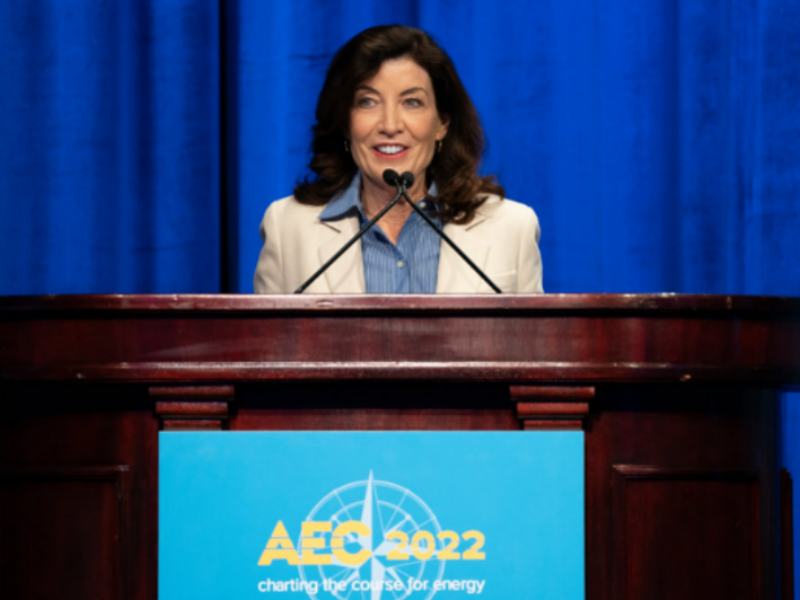New York awarded $16.6 million in funding for five long-duration energy storage projects and made another $17 million available for projects that advance development of long-duration energy storage technologies, including hydrogen.
The state’s larger goal is to install 3,000MW of energy storage by 2030 to help integrate renewables. New York wants to eventually develop 6,000MW.
The awarded funding comes through the New York State Energy Research and Development Authority (NYSERDA). The $16.6 million will support the following projects:
- Borrego Solar Systems, Inc. – $2.7 million – To develop, design and construct two stand-alone energy storage systems and perform field demonstrations of a six-hour zinc hybrid cathode energy storage system in New York City to help demonstrate that zinc hybrid technology is economically competitive with lithium-ion.
- JC Solutions, LLC dba RCAM Technologies – $1.2 million – To develop a 3D concrete-printed marine pumped hydroelectric storage system that integrates directly with offshore wind development in support of grid resiliency and reduced reliance on fossil fuel plants to meet periods of peak electric demand.
- Nine Mile Point Nuclear Station, LLC– $12.5 million – To demonstrate nuclear-hydrogen fueled peak power generation paired with a long duration hydrogen energy storage unit to help reduce emissions from the New York Independent System Operator electric grid.
- Power to Hydrogen – $100,000 – To develop a Reversible Fuel Cell System for Hydrogen Production and Energy Storage called the Clean Energy Bridge and to help facilitate the system’s readiness for demonstration and commercial adoption.
- ROCCERA, LLC – $100,000 – To evaluate and demonstrate a novel commercially viable Solid Oxide Electrolyzer Cell prototype for clean hydrogen production together with a corresponding scalable, more efficient manufacturing process.
The additional $17 million in competitive funding would encourage further product development and demonstration projects in energy storage that are 10 to over 100 hours in duration.
Have you read?
Toyota to collaborate with US DOE on fuel cells for power generation
Saft batteries support solar microgrid on Italian island
NYSERDA said project submissions should advance, develop or field-test hydrogen, electric, chemical, mechanical or thermal-electric storage technologies that would address cost, performance, siting and renewable integration challenges, such as grid congestion, hosting capacity constraints and lithium-ion siting in New York City.
Proposals will be accepted through October 17, 2022.
To date, NYSERDA’s Renewable Optimization and Energy Storage Innovation Program has enabled the development of 356 projects with over $225 million. NYSERDA initiatives are funded through the State’s 10-year, $6 billion Clean Energy Fund.
NYSERDA, the New York State Department of Public Service and the state’s Department of Environmental Conservation are also working to develop a regulatory clean hydrogen framework.
This includes the evaluation and development of codes and standards, program development to support microgrids that are hydrogen powered rather than by polluting backup generators and funding for hydrogen product development, pilots and demonstrations.]
This post was originally published on Power Engineering.
